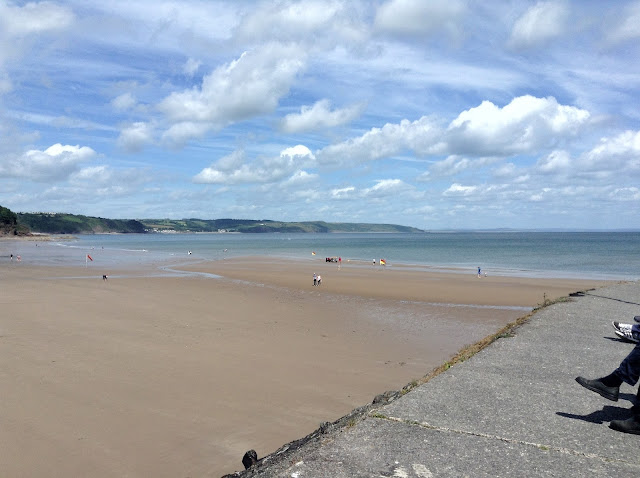Why is travelling with M.E. difficult?
 |
| Tenby Beach, Wales. Copyright Much Ado About Travelling. |
There are a multitude of common ME symptoms that make travelling
difficult and they will affect each sufferer differently, as ME is a
fluctuating illness. The following are just a few of them:
The defining factor of ME is post-exertional malaise. This means
that exercise or exertion significantly fatigues us, something very
different to typical tiredness. For severe sufferers sitting up can be
enough to create this, for moderate sufferers it might be a walk and for
mild sufferers it might be a particularly eventful weekend. Either way,
ME sufferers need significant time to recover from activity and have to
pace themselves. The malaise can set in after a few seconds, a few
minutes, a few hours or even a few days and can last even longer. If
there is a significant distance between a car park and an entrance, for
example, we can be exhausted before we even get through the doors.
Another difficulty is heightened sensitivity to noise/light/smells.
Imagine everything around you - colour, light, the sound of someone's
voice - is amplified x10. This is what everyday stimuli can feel like to
ME sufferers which is a lot to deal with! Just sitting in a car can
feel like you're being put through intense exercise as your body deals
with the vibrations and noise of the engine and the movement of the car
as it turns. Often the mind can shut down under this strain, it can
cause headaches and trouble thinking. This isn't helped by the fact ME
patients typically have brain fog, which means they have trouble
processing. This can mean reading a paragraph can take half an hour as
they struggle to understand it.
ME sufferers are also, generally, in pain. This can be headaches, gland pain, muscle, nerve or joint pain. And they also commonly have nausea.
All of these things can make travelling difficult - have you ever been
stuck on a plane with a baby crying? To you that might sound really
annoying, to an ME patient it could be excruciating. However, that
doesn't mean that chronically ill people don't want to go out. We just have to have our
survival techniques for when we're out in the wild.
I use a wheelchair to limit the physical strain on my body. I generally
only go out with my mum and close family who know me and know that
keeping up conversation whilst out can be too much. I
generally avoid restaurants (so much noise and movement!). I always have
my "ME Survival Kit" - my backpack that has things to help with pain,
nausea, shakiness, light sensitivity - anything that might be an issue.
And I pace. I can't go somewhere every week, not even every two weeks. I
might make a small trip once a month, if I'm lucky. More likely it'll be every two to three months. I have to give my
body time to rest and look after itself.
It's my aim that this site can provide hope for those severe ME
sufferers who at the moment aren't well enough to get out; that in can
provide ideas and information for moderate/mild sufferers as they make
the most of what they are able to do; and that it can maybe provide some
understanding for people without ME and similar chronic illnesses and
disabilities about the extra thought and preparation that has to go into
life for some people.
*I currently have moderate ME, meaning I use a wheelchair pushed by someone else, and a walking stick. Please take into account your own physical capabilities when planning a trip, if you need to start small then start small. Look into what you can see nearby for when you're ready. Although, when at my best, I may be able to post every 1-2 weeks, that does not mean I am well enough to travel that frequently! Many of my posts come from a backlog of trips taken over the past few years.
